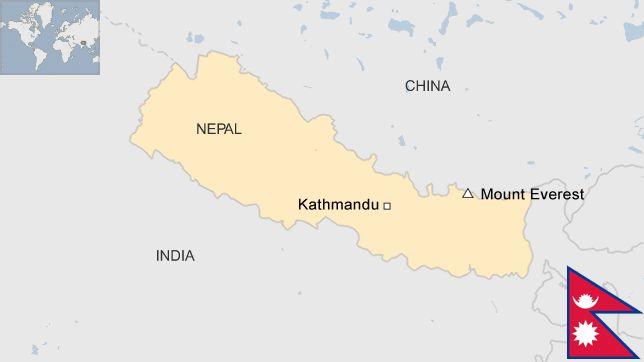Nepal buildings torched after Tharu constitution clashes
- Published
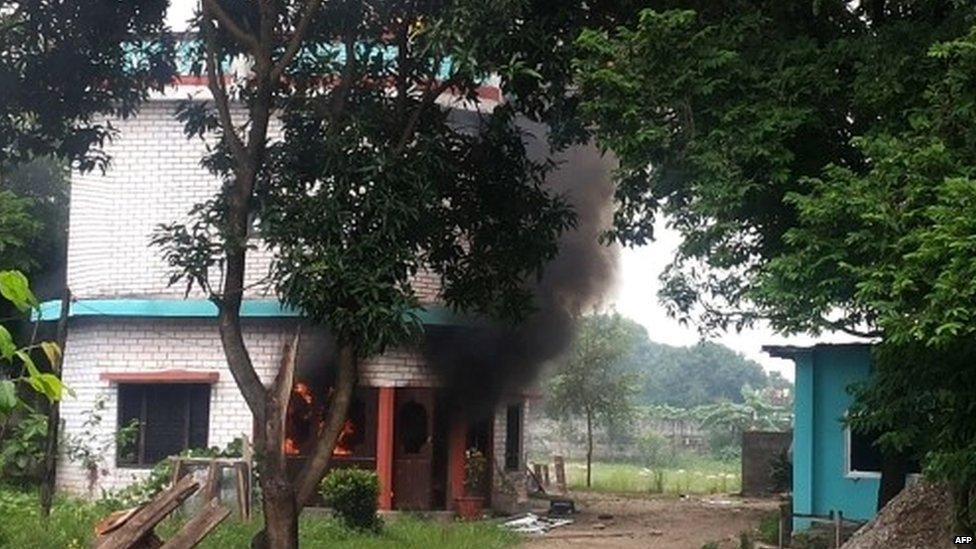
A radio station, guest house and MP's home were vandalised in Tikapur
Residents of a town in north-western Nepal have defied a curfew imposed after deadly clashes, torching homes and vandalising buildings, police say.
Much of it was targeted against the ethnic Tharu community in Tikapur, whom they blame for violence on Monday in which seven policemen and a child died.
Tharu protesters had been at a rally demanding greater rights under a new constitution when the clashes erupted.
A man, 18, has died in the south after police fired at a similar protest.
In that incident, officers used tear gas and fired warning shots in the air on Tuesday when ethnic Madhesi protesters had entered the town of Gaur, in the southern plains of Rautahat district, where such demonstrations had been banned, the local chief district officer, Madan Bhujel, said.
Minority ethnic groups have been demonstrating across Nepal, saying the new constitution, which would divide the country into seven federal states, would discriminate against them and give them insufficient autonomy.
Army deployed
In Tikapur town, in north-western Kailali district, protesters attacked a radio station and a guest house, regional police chief Ram Kumar Khanal told the BBC Nepali service.
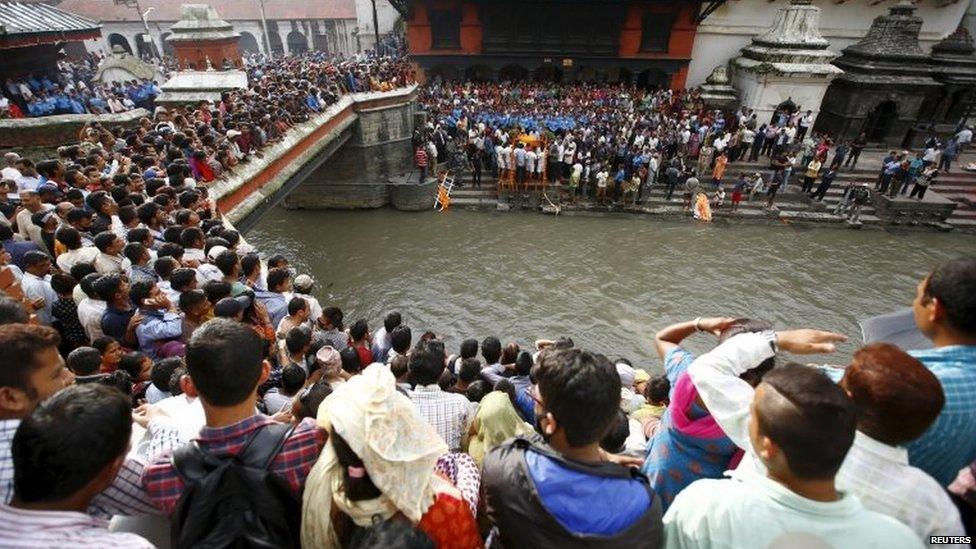
A funeral was held in the capital for one of the officers killed in the violence on Monday
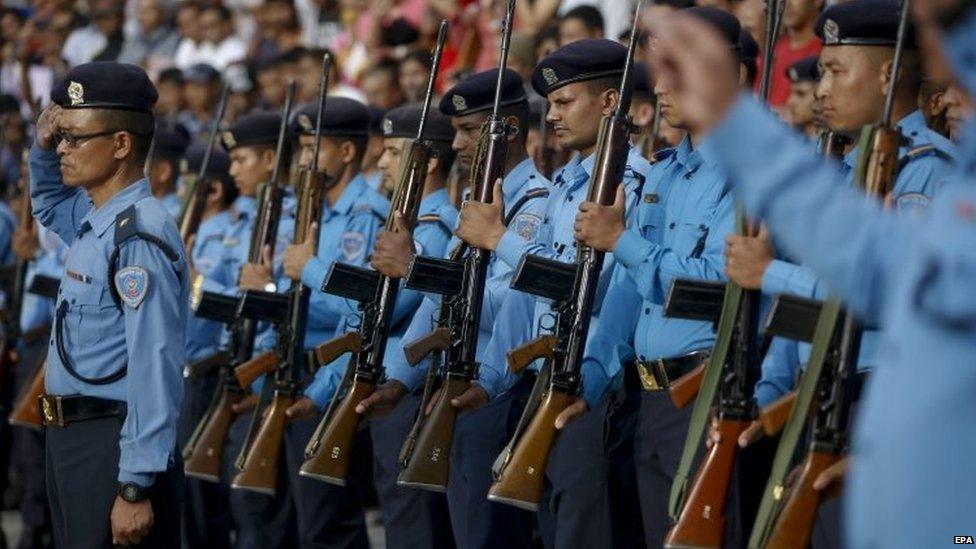
Crowds and other police officers came to pay their respects to Laxman Neupane
The angry mob also vandalised the home of a lawmaker belonging to the Tharu ethnic group, the deputy inspector general said.
Police fired warning shots more than a dozen times to disperse the crowd, he added.
In the capital, Kathmandu, hundreds of people attended the funeral for Laxman Neupane, the most senior policeman to lose his life on Monday in Tikapur.
The ethnic Tharu protesters had encircled the officers, attacking them with spears and axes and burning one person alive, officials said.
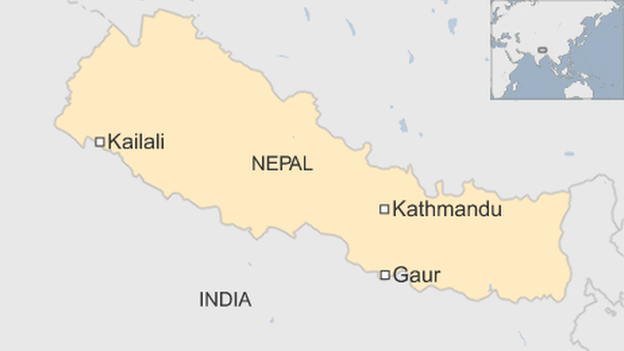
According to the Associated Press news agency, many of the protesters fled into the jungle and nearby villages in Kailali district after the clashes.
Security personnel, including the army, have been deployed to Tikapur, which is about 400km (250 miles) north-west of Kathmandu, in an attempt to calm the situation.
Meanwhile, Nepal's four major parties have met and said they will hold talks with dissatisfied groups to address their political demands, the BBC's Phanindra Dahal reports from Kathmandu.
- Published15 July 2024
